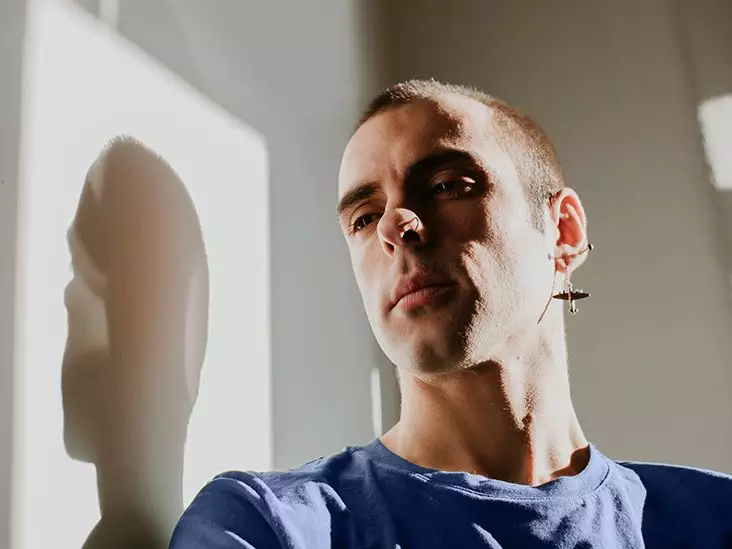Anxiety and psychosis are two mental health phenomena that often provoke considerable confusion due to their overlapping symptoms. While anxiety does not directly cause psychosis, severe cases with prolonged experiences can precipitate psychotic episodes in vulnerable individuals. Understanding the nuances that distinguish these conditions is essential for recognizing their interrelation and for providing adequate treatment and support.
Anxiety is primarily characterized by excessive worry or fear, resulting from various stressors or expected threats. This emotional disturbance can manifest as physical physiological symptoms such as an increased heart rate, muscle tension, or gastrointestinal discomfort. Behavioral changes like restlessness and avoidance of perceived threats also serve as notable indicators. Affective symptoms, including impatience and frustration, further enrich the landscape of anxiety-related experiences. On the other hand, psychosis represents a significant departure from reality, where individuals experience hallucinations—seeing or hearing things that are not present—and delusions—strongly held false beliefs that diverge from cultural norms. The distinction lies in anxiety being a response to realistic threats, while psychosis denotes a disconnection from reality itself.
A lingering question remains: can chronic anxiety lead to psychosis? Recent studies suggest that a persistent state of anxiety, especially if experienced during formative years, raises the risk of later psychotic episodes. Research conducted in 2022 highlighted the possible correlation between sustained anxiety among children and adolescents as a precursor to psychosis. The biological mechanisms at play may involve the overactivation of stress hormones and inflammatory responses, which can erode mental stability.
However, it’s crucial to approach this link with caution. Another 2022 study evaluated nearly 510 individuals deemed ultra-high-risk for psychosis and revealed that neither anxiety nor depressive disorders were determinative factors for experiencing a psychotic episode. This raises essential considerations regarding the complexities involved in diagnosing and treating these intertwined conditions. There is still much to learn about the mechanisms that connect anxiety and psychosis, particularly regarding when severe anxiety might culminate in psychotic experiences.
Understanding the symptoms of each condition provides critical insights into how they relate and diverge. Anxiety symptoms, for example, may overlap with features associated with psychosis—such as trouble sleeping, irritability, and difficulty concentrating. Individuals grappling with anxiety may also experience a sense of impending doom, akin to feelings observed in some psychotic episodes, but the nature and context of these experiences differ significantly.
Moreover, while anxiety can manifest diversely, including through cognitive, emotional, and behavioral alterations, psychosis fundamentally disrupts the perception of reality. Anxiety does not inherently involve hallucinations or delusions, although extreme stress can skew one’s perception and provoke momentary disturbances in reality. Therefore, while the two conditions may emerge from similar psychological backgrounds, such as past trauma or chronic stress, their symptomatic expressions and implications are markedly different.
Both anxiety and psychosis can arise from a plethora of influences, ranging from psychological traumas to underlying physical health issues. In many instances, social factors like work-related stress, familial pressures, or financial instability may incite anxiety, which in turn can predispose individuals to a psychological crisis if not addressed in a timely manner.
From a medical perspective, the onset of psychosis can result from various health conditions that affect the brain or alter neurological balance. Psychological stressors, coupled with medical complications such as infections, may amplify susceptibility to psychotic episodes. Awareness of these factors helps foster a better understanding of how intertwined yet distinct these conditions are.
Addressing anxiety and psychosis often requires an integrative approach consisting of therapeutic interventions and medication to modulate symptoms effectively. Standard care practices usually involve cognitive behavioral therapy (CBT) for anxiety and antipsychotic medications for psychosis. Therapies designed to support mental resilience, alongside community resources, play a pivotal role in enhancing the quality of life for affected individuals.
Recovery trajectories for individuals diagnosed with anxiety or psychosis vary significantly. Even with accessible treatment, the possibility of relapses in anxiety continues to be a considerable challenge. Conversely, outcomes for individuals suffering from psychosis can span a wide spectrum, with some attaining full recovery while others face enduring difficulties. Ongoing research remains crucial to unravel the complexities of these conditions further, refining treatment modalities, and improving the prognosis for individuals grappling with both anxiety and psychosis.
Anxiety and psychosis, while sharing common threads, ultimately manifest as unique challenges within the realm of mental health. By recognizing their differences and the contexts in which they intertwine, we can better understand their implications and enhance treatment strategies and support systems.

